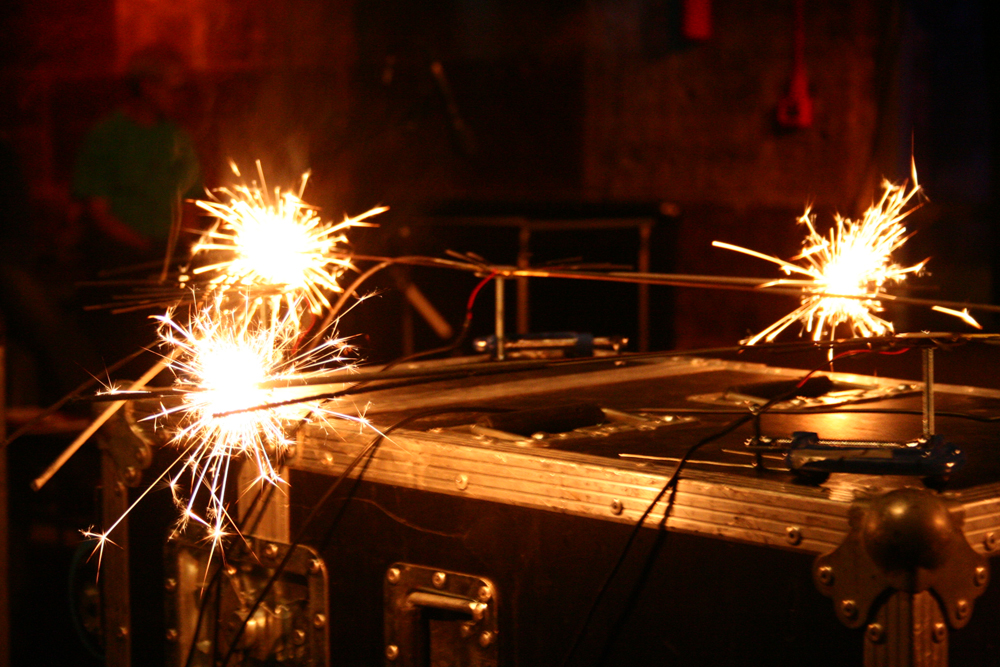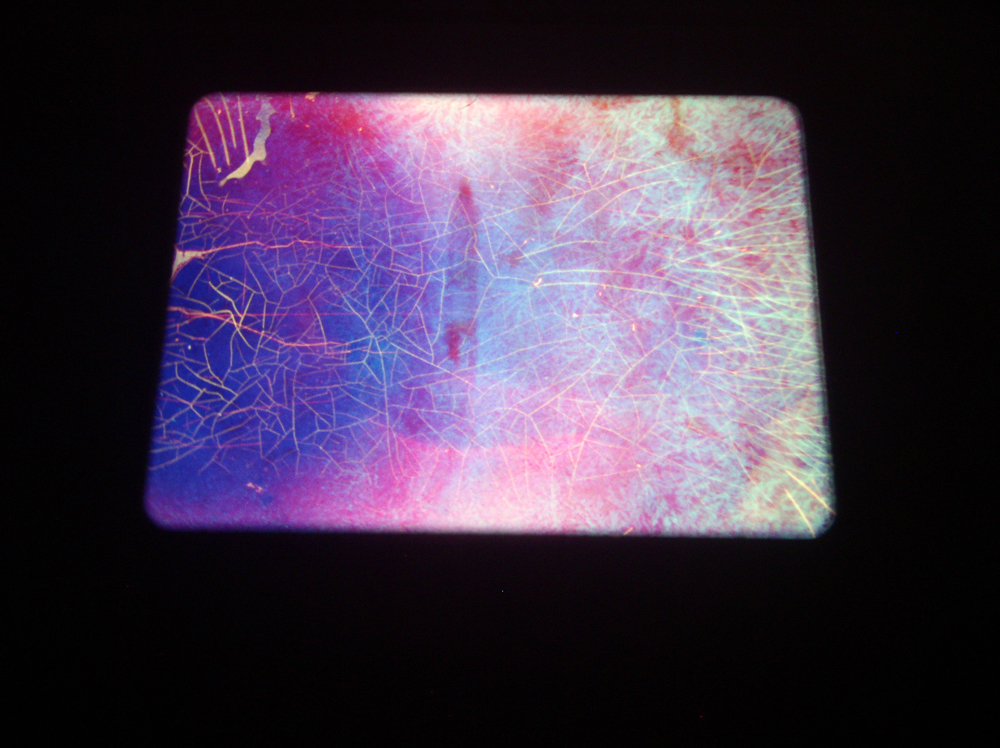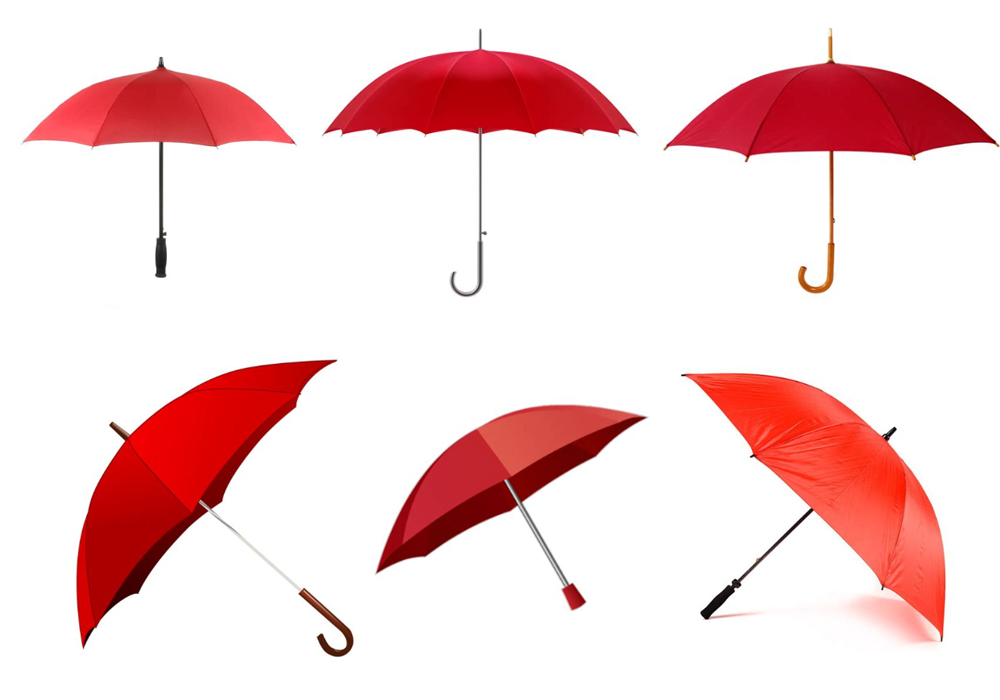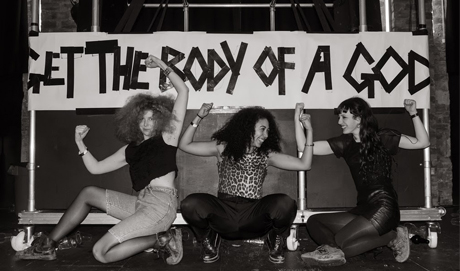
Sparklers and Table Top Set
Lee Patterson
Sonic ‘observations’ of the world, through micro recordings on a tiny scale and transformed into something musically compelling.
Arika have been creating events since 2001. The Archive is space to share the documentation of our work, over 600 events from the past 20 years. Browse the archive by event, artists and collections, explore using theme pairs, or use the index for a comprehensive overview.

Sonic ‘observations’ of the world, through micro recordings on a tiny scale and transformed into something musically compelling.

In rethinking the body, the law, the state, gender, race, violence, care and empathy, how we might give humanness a different future?

An immersive live performance for multiple 16mm film and bass clarinet, taking in the whole gallery, submerging the audience.

A short chat about what we (Arika) might be trying to do with our program for the Biennial.

A collaborative duo performance, Anoyonodekigoto sets up a sort of negotiation between a musician, a dancer, the audience and the space we’re all sharing.

A Festival supporting the struggle for Sex Workers’ Rights: share knowledge, discuss, dance and strategise!

A movement-based workshop on Krump and the politics of how we teach, learn and listen with our bodies. Move with us!

A kind of an informal overview of INSTAL.

An improvised film about our worlds at the brink, on the edge, in front of a crisis. To stand on the side of life, by seeing the resistance to genocide in Palestine as a turning point to overcome.

Ian and Gil will host a discussion on the Argument project’s social and political commentaries, and with you try and maybe think through whether and how they might still have some currency today: what’s changed and what’s stayed the same?

A poet, playwright and activist, Sanchez emerged as a seminal figure in the 1960s Black Arts Movement, writing in the name of black culture, civil rights and women’s liberation.

An audio report for the NATOarts board of directors that seeks to promote global security and stability through the exhibition of works of conceptual art.